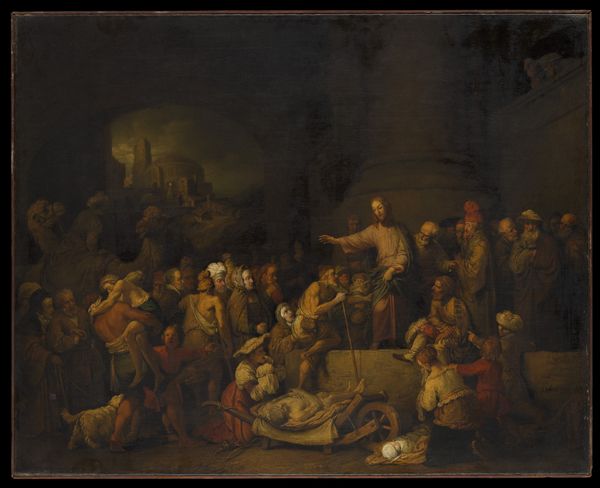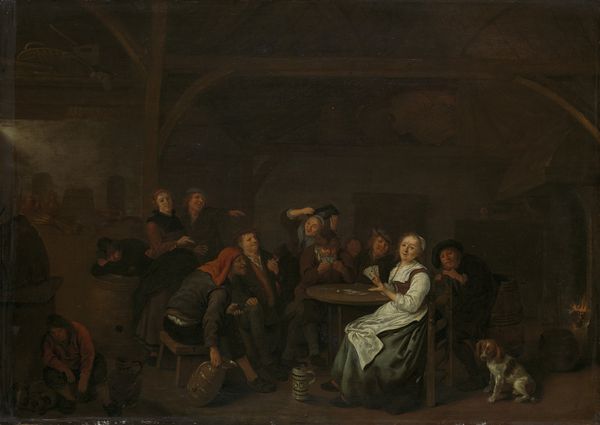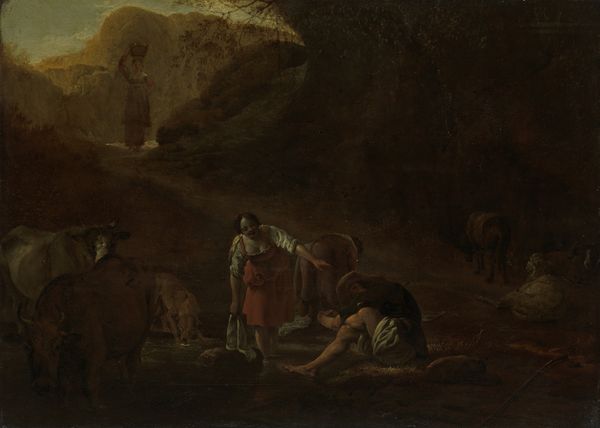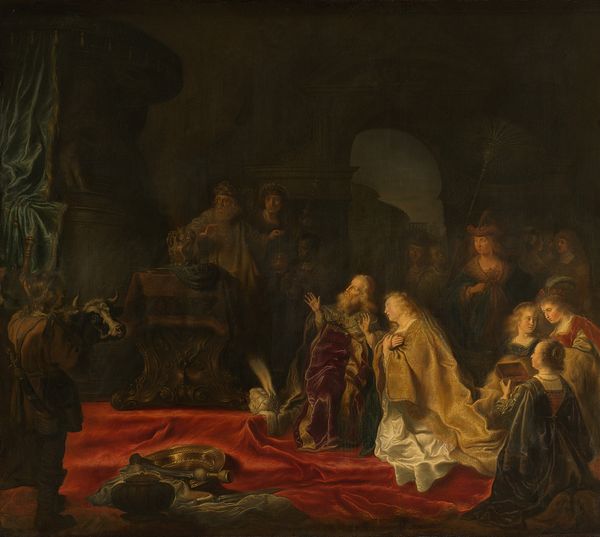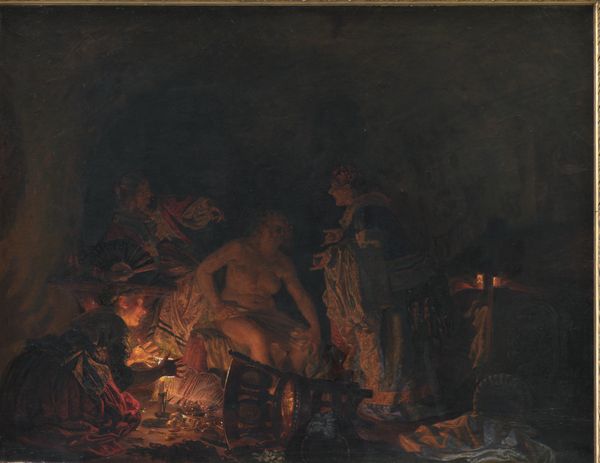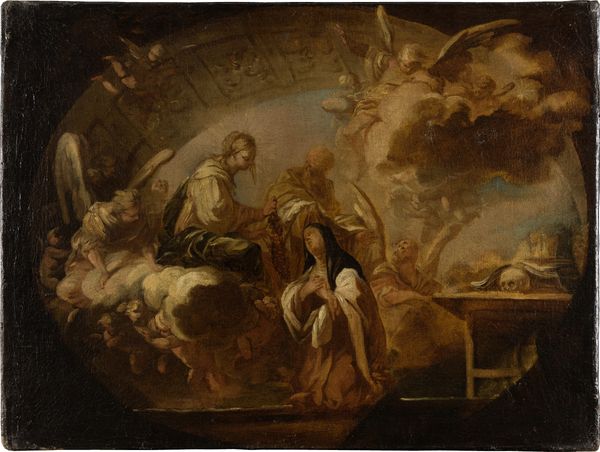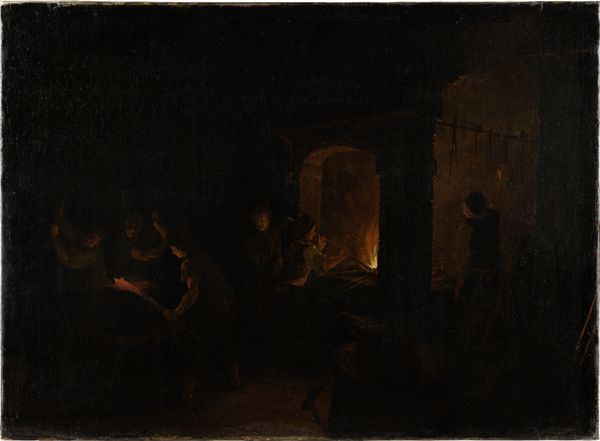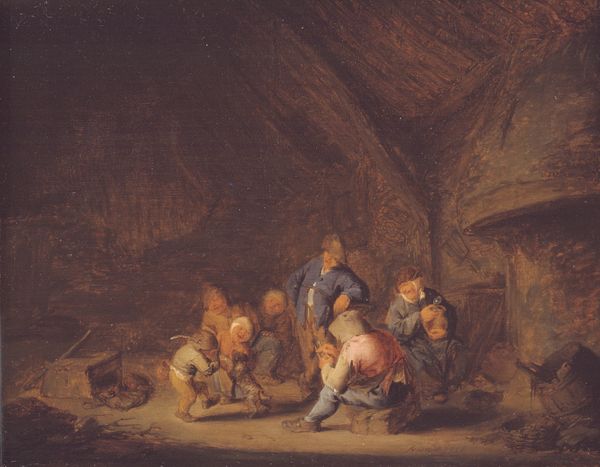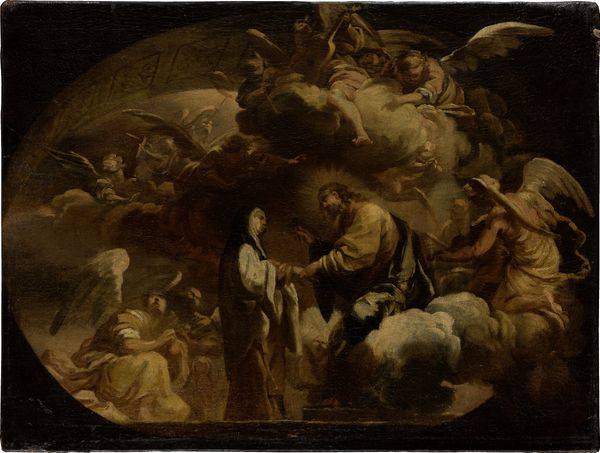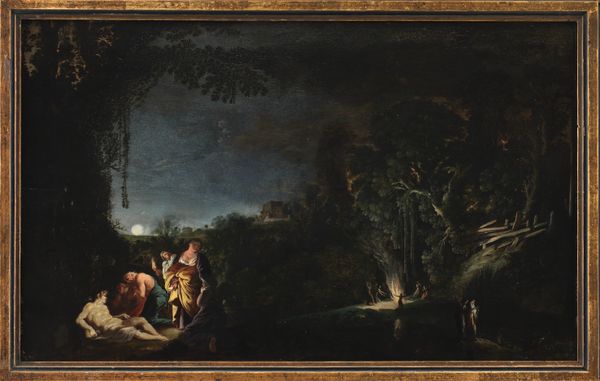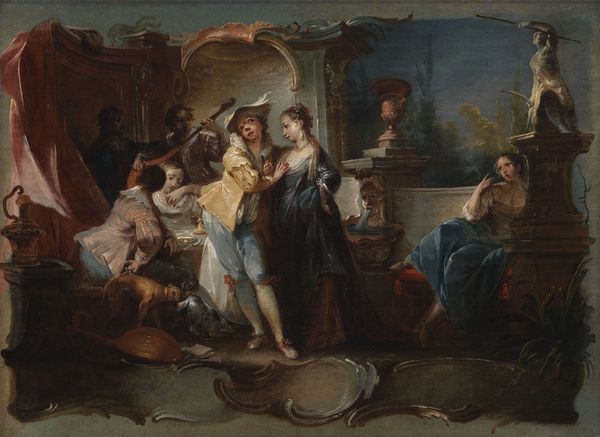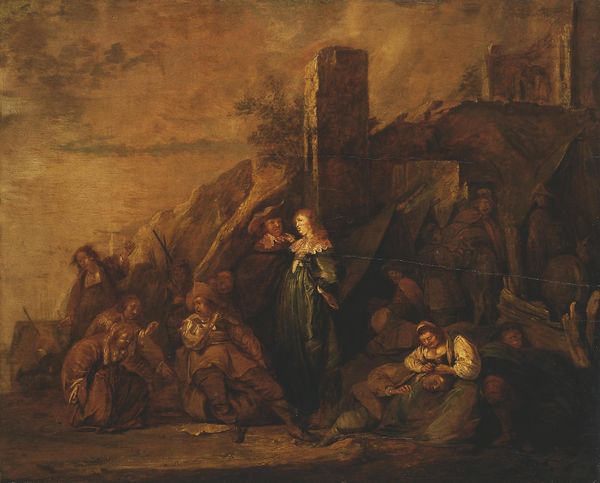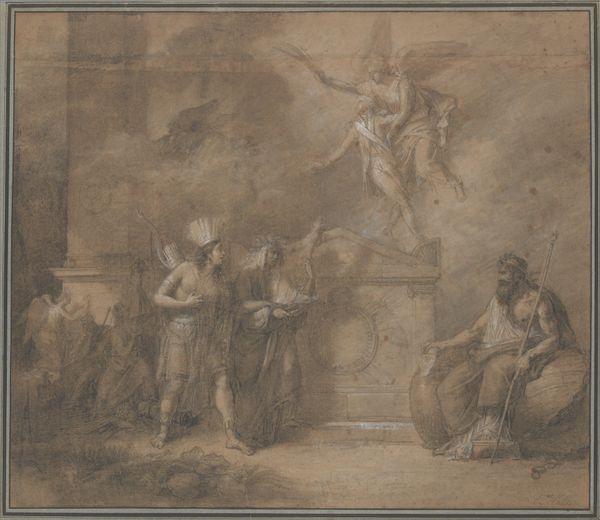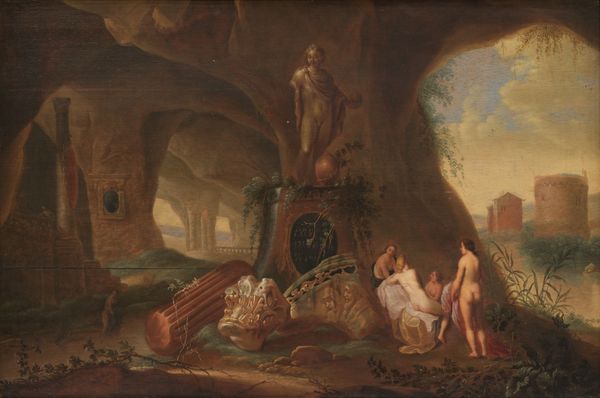
painting, oil-paint
#
narrative-art
#
baroque
#
painting
#
oil-paint
#
figuration
#
oil painting
#
history-painting
Dimensions: 60 cm (height) x 81 cm (width) (Netto)
Gerrit de Wet painted "Jephta's Daughter Being Led to the Altar," sometime between 1640 and 1674, during the Dutch Golden Age. The painting illustrates a biblical story, laden with patriarchal themes about sacrifice, duty, and gender roles. The somber scene depicts Jephta, a judge of Israel, forced to fulfill a vow to sacrifice the first thing he sees upon his victorious return from battle, which tragically turns out to be his own daughter. De Wet masterfully captures the emotional intensity of the moment, as Jephta’s daughter is being led towards her fate. Notice the role of women in the painting, embodying both vulnerability and silent acceptance. Jephta’s Daughter represents the subjugation of women within religious and patriarchal structures, quietly accepting her destiny. The painting serves as a poignant commentary on the complex dynamics of power, faith, and familial duty during the 17th century.
Comments
No comments
Be the first to comment and join the conversation on the ultimate creative platform.
